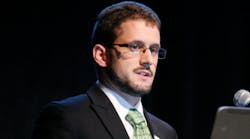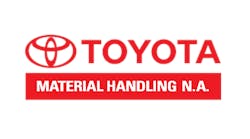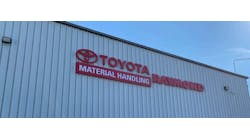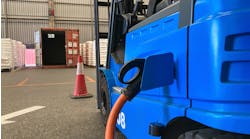Although lead acid batteries are the preferred power source for forklifts, we’re living in a time when alternative power sources are making forklift OEMs give those alternatives a second look. The Raymond Corporation is one of those OEMs, and its product manager of energy storage systems and emerging technologies shared his insights on electric and hybrid technologies during a panel discussion at The Battery Show held in Novi, Michigan, Sept. 16 to 18. Raymond’s Arlan Purdy addressed the topic of battery and energy storage applications for off-highway and heavy-duty electric vehicles.
He commented on how five popular technology topics discussed at the trade show relate to forklifts:
-
Lead-acid technology evolution.
Show participants explored the concept of utilizing new technologies to extend current battery capacities, such as integrated supercapacitors, microstructured lead electrodes and alternative electrode materials (such as carbon).
-
Lithium-ion batteries.
A range of different lithium battery designs were exhibited at the show, but Purdy said they are not available for lift trucks. New lithium battery designs are being explored, however, such as silicon or carbon electrodes. Lift truck applications may have different requirements, such as lower voltage or higher peak currents than existing motive power applications.
-
New battery technologies.
New battery technologies often include control systems to keep the battery in ideal working condition for longer periods of time. In some cases, batteries can shut down if misused or pushed too hard.
-
Application matters just as much as the battery.
Many applications exhibited value batteries that are relatively lightweight. However, in many current lift truck applications, the batteries are part of the counterweight.
-
Beyond material handling, batteries are crucial to green energy.
As solar and wind power are heavily weather-dependent, energy storage may benefit these applications. There are pilot energy storage facilities in place around the country and the world today.
“We at Raymond are excited to see this technology advancing and to be a part of the conversation,” Purdy concluded. “We look forward to further advancements in energy storage that may benefit our customers’ operational efficiencies, as well as their bottom line.”



